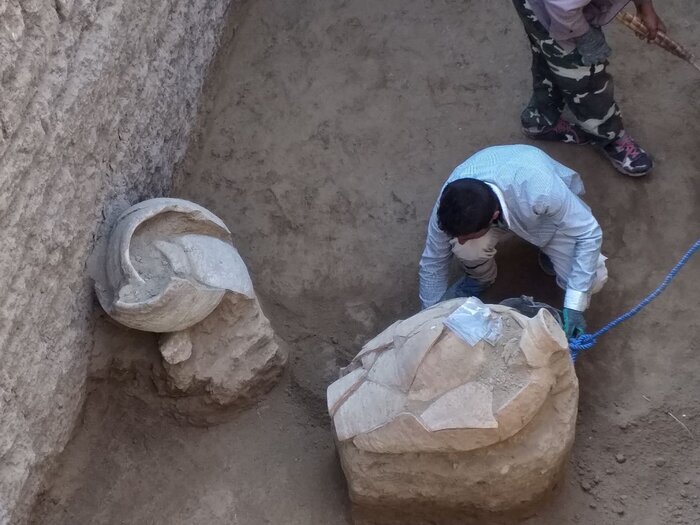Achaemenid, Parthian clay seals unearthed in northeast Iran

TEHRAN – A team of Iranian and German archaeologists has recently discovered historical clay stamps, which are estimated to date from Achaemenid and Parthian eras.
The objects were found in an archaeological zone situated in Rivi region, Maneh-Samalqan county, northwest Iran, IRNA reported on Sunday.
“The seals were found alongside clay urns in a large hall and the seals are imprinted in a variety of geometric patterns [depicting] plants, animals, and human figures. Studying the findings can yield valuable information on economy, culture, and arts of the ancient societies,” said Mohammad Javad Jafari who heads Iranian archaeologists.
“These stamps represent the widespread and complicated economic relations that people of the time had with other communities in such a way that made them to bring together and store goods.”
Evidence suggests that residents of this area sealed the urns that were loaded with particular goods then tied them with ropes, the archaeologist said.

Head of German archaeologists also noted that the discovery of these seals and clay urns was happened during the seventh season of excavations at the site, adding “The large [storage] building indicates a warehousing network and extensive economic exchanges between [the then] Rivi residents and other settlements in the region.”
The Achaemenid Empire (550–330 BC) was the largest and most durable empire of its time, stretching from Ethiopia, through Egypt, to Greece, to Anatolia (modern Turkey), Central Asia and to India.
The Parthian Empire (247 BC – 224 CE), also known as the Arsacid Empire, was a major Iranian political and cultural power in ancient Iran. The Parthians largely adopted the art, architecture, religious beliefs, and royal insignia of their culturally heterogeneous empire, which encompassed Persian, Hellenistic, and regional cultures. At its height, the Parthian Empire stretched from the northern reaches of the Euphrates, in what is now central-eastern Turkey, to eastern Iran.
AFM/MG
Leave a Comment